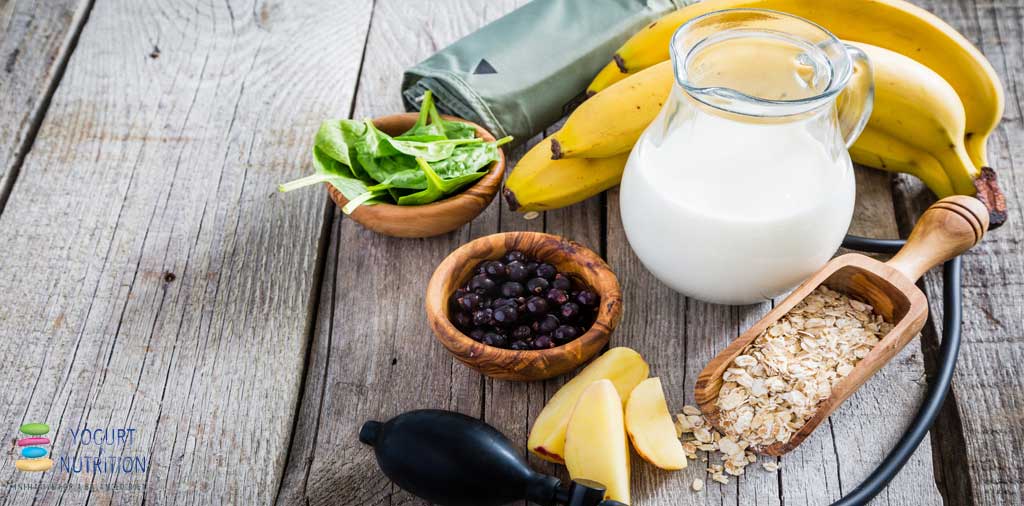It’s the silent killer that creeps up without warning and you don’t know you have it until you suffer a heart attack or stroke. But high blood pressure can be brought under control with medication or even a few simple lifestyle steps such as eating healthily and staying active. And now research reported in this article reveals that eating yogurt as part of a healthy diet is associated with a lower risk of developing high blood pressure over the long term.
Yogurt consumption is a sign of a healthy lifestyle
This large US study followed healthy middle-aged and older men and women for up to 30 years, recording details every two years of their diet and whether they had developed high blood pressure. The aim was to see if there was any association between dairy intake, particularly yogurt, and blood pressure.
The authors found that yogurt consumption was linked to a healthy lifestyle. People who ate the most yogurt were more active, were less likely to be overweight or to smoke, and had a healthier diet than those who weren’t yogurt-lovers.
‘Participants who consumed the most yogurt tended to have healthier diets overall as measured by a DASH [Dietary Approaches to Stop Hypertension] diet score.’ – Buendia et al, 2018.
Yogurt consumption was associated with improved blood pressure control
People who ate at least five pots of yogurt each week had a 16% lower risk of developing high blood pressure during the study than people who rarely or never ate yogurt.
The authors also looked at the effects of high intakes of total dairy (milk, ice cream, cheese and yogurt), milk, and cheese. Higher total dairy intake was also associated with a reduced risk of high blood pressure by 16%, while weaker associations were seen for high milk and cheese intakes (12% and 6%, respectively).
In their analysis, the authors took into account various factors that could affect the development of high blood pressure – age, race, smoking, physical activity, diet and family history of high blood pressure – so that they didn’t mask the effects of dairy products. They found that taking obesity into account did not change the results much.
‘… higher total dairy intake especially in the form of yogurt was associated with a lower risk of developing HBP [high blood pressure] during the middle adult years. This association was particularly strong among adults with a generally healthy diet pattern. – Buendia et al, 2018.
People who ate the healthiest diet and at least five pots of yogurt a week had a 30% lower risk of developing high blood pressure than people with a poor diet who rarely or never ate yogurt.
Nutrient composition of yogurt may benefit blood pressure
The association between dairy consumption, particularly yogurt, and blood pressure may be explained by its nutrient content. Yogurt contains high concentrations of proteins (casein and whey proteins), as well as calcium, magnesium, potassium and vitamin D, all of which have been linked to regulation of blood pressure. During the fermentation process used to make yogurt, biologically active peptides are formed and these too have been shown to promote blood pressure-lowering effects.
Yogurt and weight control
People tend to put on weight during middle age. Being overweight increases your risk of developing high blood pressure. Eating yogurt has been associated with reducing weight gain during middle age and we’d expect this to benefit blood pressure.
The authors conclude that their results provide further support for dietary guidelines that recommend eating dairy foods.



